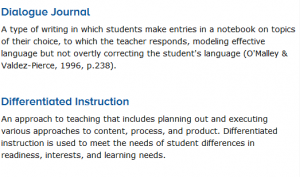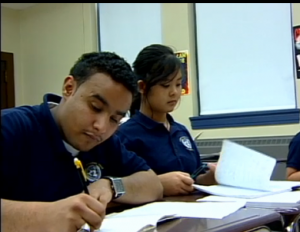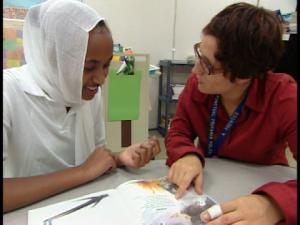One common factor in schools where English language learners (ELLs) succeed is that they are seen as "everyone's students." Schoolwide support that addresses ELLs' unique needs is part of the fabric of the school and in many cases, the schools have le
Administrators play a crucial role in creating an environment in which ELLs can succeed. This section offers school leaders — particularly those with growing ELL populations — ideas and strategies to make that happen.
Ever wondered what a semantic organizer was? Or the difference between ELD and ENL? Or perhaps you just want to learn a new word everyday!
In your work with English language learners (ELLs), you may meet students who have unique social, emotional, and academic needs based on their prior experiences.
These articles, video clips, books, and online resources focus on ways educators can support students and families who are refugees.
Educators who work with migrant farmworker students have a unique opportunity to make a significant difference for their students, even if they only work together for a short time.
Unaccompanied minors often come to the U.S. without an adult caregiver, via a dangerous journey. They may have experienced trauma, violence, or family separation. They may also face complicated family dynamics upon their arrival. This resource section includes including tip sheets, news stories, reports, films, and books.
The following resources about adoption feature a number of tools for parents and educators of internationally adopted children who may be English language learners.








